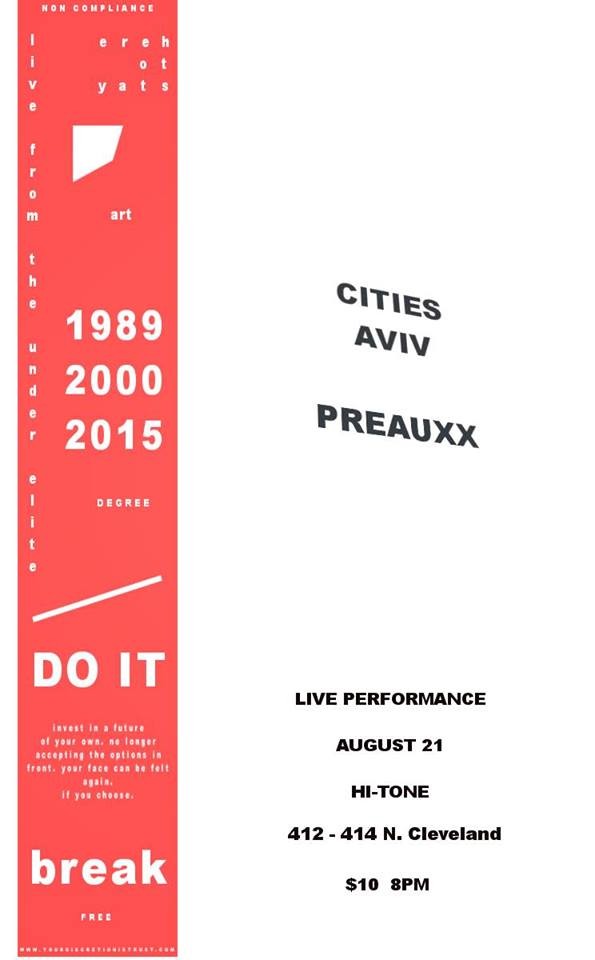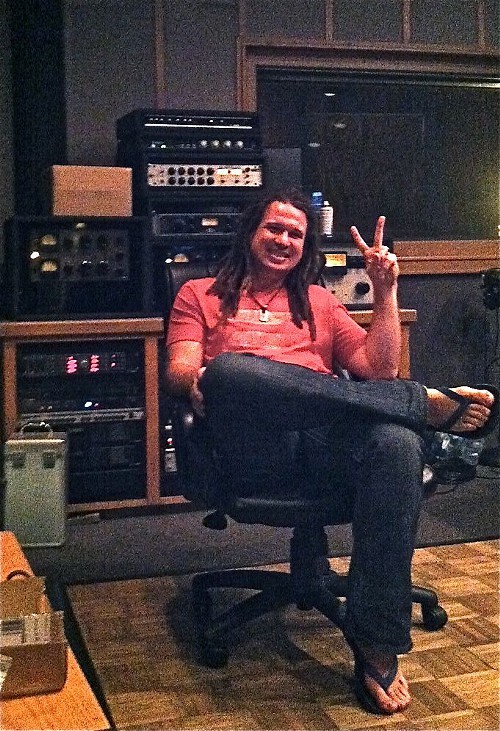Two years ago, only a month into Russia’s invasion of Ukraine, the Memphis Symphony Orchestra (MSO), the Memphis Symphony Chorus, and the University of Mississippi Concert Singers, before their rendition of Beethoven’s 9th Symphony, launched into the national anthem, “Державний Гімн України,” aka “The Glory and Freedom of Ukraine Has Not Yet Perished,” and suddenly all the audience felt, as if through high-voltage cables, a direct through line to Ukraine’s history via a song written some 160 years earlier. The audience rose to their feet, stirred but also reassured, it seemed, to be sharing that historical moment in real time, celebrating a righteous cause through music.
A similar electricity surged through the crowd at the opening of a significant concert earlier this month. All were awaiting the premiere of the Harriet Tubman Oratorio by Memphis composer Earnestine Rodgers Robinson, when the familiar first strains of introductory music caused the audience to rise from their seats and sing along: It was “Lift Every Voice and Sing,” the 1900 hymn that’s now embraced as the de facto national anthem of Black America. Given today’s troubled racial politics, it was no less galvanizing than the Ukrainian national anthem had been in 2022, as a massive, diverse crowd stood to sing of hope and empowerment for all. In both cases it was that venerable old institution of the fine arts, the symphony orchestra, offering insight into today’s struggles by keeping history’s songs alive. It was as if remembering the past had become an act of resistance, as in Orwell’s 1984, and here was the MSO leading the charge, radically challenging us with our own cultural memories.
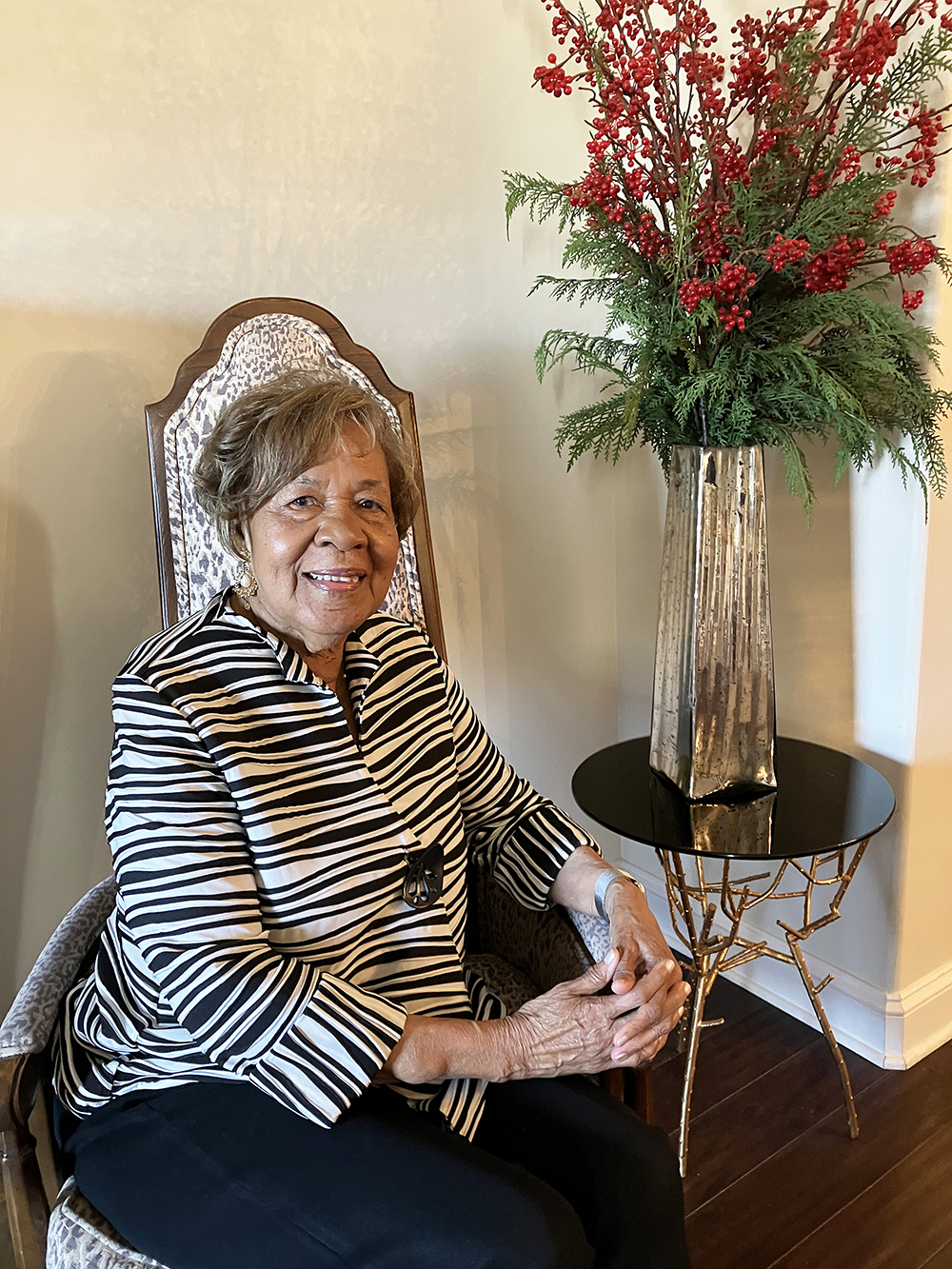
But even as the MSO and other classical ensembles offer that link with history, they’re also taking chances, delving into unexplored territory, and nurturing the music of the future. And it’s making this city’s classical scene one of the most vibrant in the country.
“I’ve Got Two Strikes Against Me”
As it turned out, the Harriet Tubman Oratorio premiere succinctly captured what is fomenting in the Memphis classical world today. While honoring the historical figure of Tubman, devoted abolitionist and leader in the Underground Railroad, the oratorio itself was absolutely contemporary, the latest from Memphis’ self-taught composer Earnestine Rodgers Robinson. Though her first major work, The Crucifixion Oratorio, premiered at Carnegie Hall as early as 1997, and the Czech National Symphony Orchestra performed her piece, The Nativity, in Prague more than 20 years ago, this would be the first time any of Robinson’s orchestral works would be performed in her hometown.
And so when the room swelled with the strains of “Lift Every Voice and Sing” that night, it was in tacit recognition of both Tubman and the composer herself, two Black women whose voices were set to be lifted to glorious new heights by no less than the MSO, four star singers from Opera Memphis, the Memphis Symphony Chorus, and the Mississippi Boulevard Christian Church Choir. “Yet with a steady beat,” sang the choirs and the crowd, “Have not our weary feet come to the place for which our fathers died?” In that moment, for one night’s performance at least, it felt as though we had.
As the night went on, Robinson’s new oratorio lived up to the moment in all its gravitas, juxtaposing Tubman’s own words, brought to life by storyteller and griot Janice Curtis Greene, with Robinson’s memorable melodies woven into the intricate orchestrations of her arrangers, Heather Sorenson and Francisco Núñez, the chorus of voices sometimes exploding with earthshaking power. It was a testament to Robinson’s vision, matched with the vision of a major symphony orchestra embracing works from outside the conservatory. The fact that it was happening in Memphis’ own Cannon Center made clear how far Robinson had come since her first forays into writing devotional music half a century ago.
It all started in the 1970s when Robinson was tasked to organize an Easter program for her brother’s church, and a melody poured out from her unbidden as she read some Bible verses. Encouraged by her late husband Charles, an accountant who played classical piano (and worked for Mercury Records for a time), Robinson continued to compose over the years in the same way. “I have to have the words first,” she says of her process. “Then the words dictate the mood. They tell the story and that tells you how the music goes. It dictates to your spirit and you go with the flow.”
Working out the melodies thus, Robinson then records herself singing her compositions and mails the recording to herself, the dated postmark serving as proof of her authorship. “Then, once I’ve done that, I’m ready to give it to a person to score for me. They tell me these melodies I write are intricate. I don’t know they’re intricate, though. I just know I’m singing what I heard.”
Now 86, Robinson is still a little stunned that she’s found such acceptance in the classical milieu. When her work was performed in Prague, she says, “I was intimidated. I said, ‘Oh, my goodness! I’m in the wrong place, with all these supposed composers.’ I didn’t know how they were going to accept me. I’m Black, and I’m a woman, so I’ve got two strikes against me.”
Yet, as it turns out, the classical establishment’s embrace of her work reveals an increasingly progressive tendency in that world, and helps explain how the National Civil Rights Museum came to sign on as a sponsor of the concert. As Kyle Dickson, the MSO’s assistant conductor who led the orchestra through the Harriet Tubman Oratorio, says, “In the last four years there have been many classical organizations that have embraced this idea of performing more composers of color, or just simply presenting more concerts that are more inclusive, that reflect more of the communities that they exist in. These are composers whose contributions have been swept under the rug for so long.”
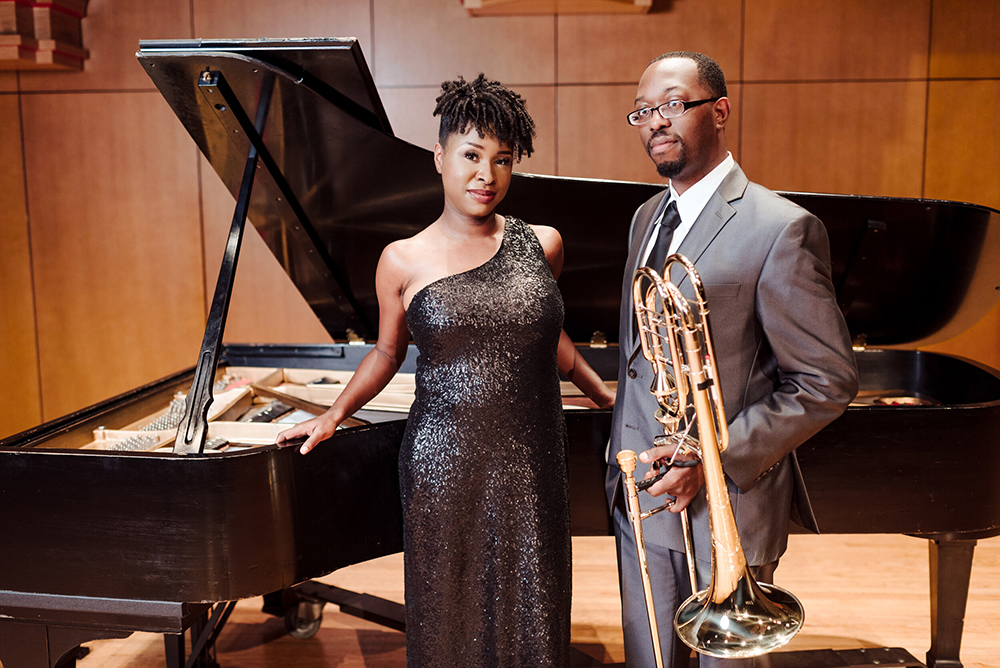
There are other signs that composers of color, both old and new, are being taken more seriously. Pianist Artina McCain, associate professor of piano at the University of Memphis Rudi E. Scheidt School of Music, often curates Celebration, a Black composers festival in Austin, Texas, that’s now in its 18th year. That in turn has led her to program concerts here with a similar brief, most notably in her Mahogany Chamber Music Series at Crosstown Arts, a series of chamber music concerts spotlighting Black and other underrepresented composers that McCain began in 2019. (This year’s edition of the series takes place February 25th at Crosstown Theater.)
A major element in the revival of Black composers has been reaching back into history to revive writers who were neglected at the time, such as William Grant Still or Florence Price. “Florence Price is making a resurgence these days,” McCain told the Memphis Flyer in 2019. “She seems to be the composer of preference as far as being a female of color that symphonies are programming. People are becoming more aware of her musical style. And the rhythms and harmonies that she uses are very familiar in American folk music. Black composers wanted to fuse the genres that were more readily associated with Black Americans — jazz, blues, gospel — with their training. So they came up with this genre that’s a thing in itself.”
That “genre” is regularly being celebrated by the MSO, as in their recent concert celebrating the 100th anniversary of Gershwin’s Rhapsody in Blue, which opened with four compositions by Still, who was blending jazz with classical years before Gershwin’s famous work. Also including the eerie harmonies of Kurt Weill’s take on American jazz, and pianist Zhu Wang on the Gershwin piece, the concert was a study in diversity, from the repertoire to the audience to the musicians themselves.
Robinson’s daughter, Michelle McKissack, who sits on the MSO board, feels this diversity makes the MSO unique. “Memphis really is leading the way,” she says. “You just don’t see the level of diversity in other orchestras, compared to what you see here in Memphis.”
Opera Memphis has also taken a commitment to diversity to unheard-of levels. Only a week before the Harriet Tubman Oratorio, they presented a recital of art songs crafted around the writings of Langston Hughes, including works by Still and Price. It felt as though the Harlem Renaissance, in which both Hughes and the composers were key players, had sprung to life once more, a century after the fact, through the voices of Marcus King, Kayla Oderah, and Marquita Richardson — opera singers who all happen to be Black.
In Search of Tomorrow’s Music
Yet the classical world of Memphis is not only pushing the envelope in terms of traditional racial biases. Local ensembles are also embracing a diversity of sounds, a plurality of musics, if you will, in the form of contemporary composers. Championing what is sometimes called “New Music” has become a fundamental mission of some groups here, to the point where they’re helping bring new music into being by commissioning the works directly.
McCain, for example, while introducing the works she and her husband Martin (a trombone instructor at the U of M) performed at Grace-St. Luke’s Episcopal Church in late January, noted that “90 percent of what you’ll hear in this program is music that’s been commissioned by us.” Music for piano-trombone duets being rare, this is partly out of necessity, but also springs from the McCains’ commitment to fuel the continued evolution of classical music.
They’re not alone in commissioning new works. What was once called the Iris Orchestra, now the Iris Collective, has fostered new music for more than two decades. Conductor Michael Stern, onetime artistic director of Iris and still an advisor to the collective, noted in 2022 that “commissioning new works is part of our mission statement. When we started Iris 22 years ago, the express intention was, in part, to nurture and promote the music of our time, especially American composers.”
One notable Iris commission, in 2020, celebrated the city of Memphis itself, in a symphonic tour de force by Conrad Tao inspired by Charlie Patton’s “A Spoonful Blues,” simply titled “Spoonfuls.” The piece’s inventiveness was bracing, as samples of Patton’s original recordings were followed by a brash, playful symphonic commentary that echoed the bluesman’s original singing, but with stop-start sonic blasts that made full use of an orchestra’s power.
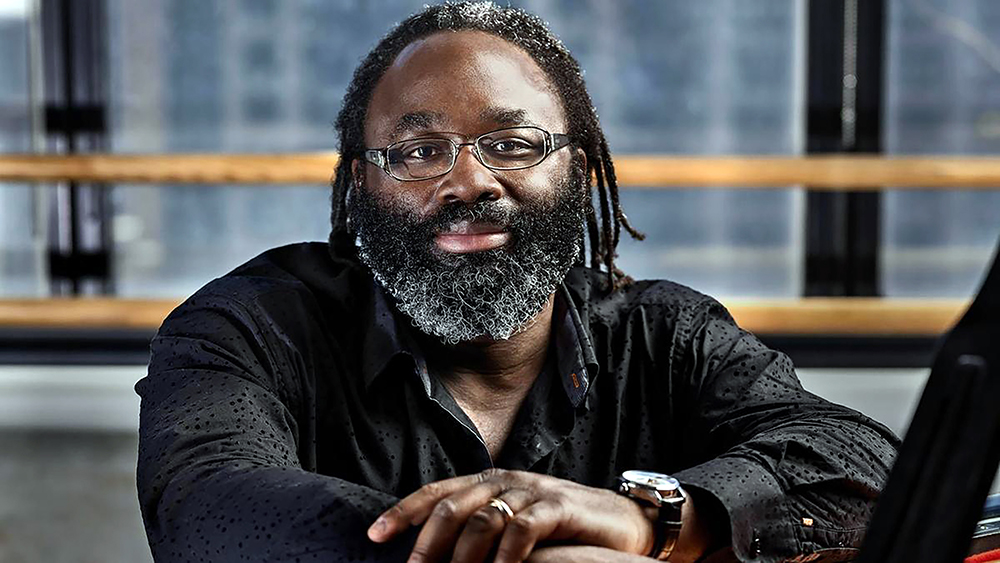
Another work that Iris co-commissioned at the time was slated to enjoy its world premiere here in Memphis, but was delayed when pianist Awadagin Pratt contracted Covid in 2022. This March 2nd, he’ll finally make good on that commitment at the Germantown Performing Arts Center (GPAC) with his performance of Jessie Montgomery’s Rounds for piano and orchestra. At the time, Stern’s enthusiasm for the new work was palpable. “Jessie Montgomery is one of the most compelling voices to rise to the top of the scene over the last two or three years, for good reason,” Stern said. “I was also co-commissioner of this piece with my Kansas City Symphony. So I’ve got a double connection with that piece. I’ve done quite a few of Jessie’s works now, and I think she is a wonderful composer. This piece especially, Rounds for piano and orchestra, is playful and dancing and really lovely. And Awadagin is making his solo piano debut with us, playing on Jessie’s piece.”
Commissioning Rounds has, in retrospect, revealed just how prescient Iris’ commitment to the new can be. This year the piece won the Grammy for Best Contemporary Classical Composition, and Pratt is being recognized as one of the most accomplished pianists of his generation. It’s indicative of how great an impact commissioning new works can have, not to mention how the inventiveness of new music overlaps with challenging deep cultural preconceptions.
Indeed, Pratt has devised a multimedia experience focused on just that. On March 3rd, he’ll present (and perform a live soundtrack for) his film Awadagin Pratt: Black in America at the University of Memphis. As Rebecca Arendt of Iris notes, “It’s part live music, part film, and part panel discussion, and it really homes in on his individual story of racial profiling. We’ll also be joined by a representative from the National Civil Rights Museum to talk about racism in our country and reconciliation.” Incorporating Pratt’s live performance, the event represents a complete rethinking of the classical music experience.
The City of Tomorrow, a wind quintet with two members at the University of Memphis, is another ensemble committed to commissioning new works, and is creating some of the most inventive music in the city because of it. After their recent show at The Green Room at Crosstown Arts, one fellow audience member confessed to me, “I never knew that symphonic instruments like that could make so many sounds!” And the pieces favored by the ensemble did lean into the unorthodox, sometimes relying on the sounds of valves clicking, spoken-word interludes by the players, or strangely expressive growls and toots from the flute, oboe, French horn, bassoon, and clarinet players comprising the group.
The final piece of that night, The Faculty of Sensing, had been co-commissioned by the group and featured another composer being widely celebrated now, George Lewis, who has won MacArthur and Guggenheim fellowships. Elise Blatchford, the City of Tomorrow’s flutist, notes that Crosstown Arts has played a pivotal role in presenting such cutting-edge work in the traditionally conservative town of Memphis. “I think Crosstown Arts is a big part of the story here,” she says. “Where I used to feel like if I wanted to see some really hard-edged new music, or anything that I’ve been reading about in The New Yorker, I’d have to take a trip up to New York. But now I just pay attention to what they’re scheduling over at Crosstown and I go there. That’s really been a shot in the arm artistically, for me personally, just having cool shows to go to.”
That was made abundantly clear last spring, when Evan Williams, a composer who’d taught for years at Rhodes College before taking a position at Berklee College of Music in Boston, returned to Memphis to premiere a new piece, Crosstown Counterpoint, commissioned by Crosstown Arts and written in honor of the very building where it was to be performed. With members of Blueshift Ensemble (since 2016, a key group in promoting new music locally) stationed in disparate parts of the concourse’s atrium, the work made full use of the echoing space which inspired it.
Subtitled “for two antiphonal string quartets and audio playback,” Crosstown Counterpoint made use of the concourse’s multiple levels, with one quartet on the ground floor and another on the mezzanine above. The stereo strings responded to each other’s hypnotic patterns as recordings of community voices were heard on the PA. In one moving passage, a Memphian observes, “The building has a personality,” then adds, “and layers of history,” a phrase which repeated as the strings played on, the words echoing through the very walls being remembered.
In such ways, the new music of today creates unexpected, inventive frames for our own history, just as “Spoonfuls” incorporated the voice of Charlie Patton, or Robinson’s oratorio evoked Harriet Tubman through her own words. In pushing the limits of traditional instruments or resuscitating the works of undeservedly obscure composers of color, new music is not discarding the past, but reimagining it.
And finally, last weekend’s performance of Debussy’s La Mer by the MSO reminded audiences of the personal dimension of the past, and the fragility of the local community that makes such leaps of inspiration possible. At one point, cellist Zuill Bailey, a featured soloist, broke out of the program to acknowledge the recent deaths of two performers, the late MSO violinist Paul Turnbow, for whom a chair in the violin section had been left empty, and Jimmy Jones, the organ virtuoso and husband of MSO music director Bob Moody, who died suddenly this month at the age of 41.
“I usually can’t find the correct way to say, ‘I’m sorry,’” said Bailey. “But I certainly can find it on the cello. And I’d like to play this for Jimmy and Bob, a piece by Gluck called Dance of the Blessed Spirits.” As the strains of a solitary cello filled the house, the silences seemed as eloquent as the notes, Bailey lingering over each pause with great care. As it ended, you could have heard a pin drop. Surveying the audience and the musicians, one could not have imagined a wider cross section of the Memphis melting pot. All of us shared the moment together, irrespective of race, class, or gender, to treasure the life’s work of two consummate music makers, and, by way of honoring them without prejudice, to simply listen with fresh ears.
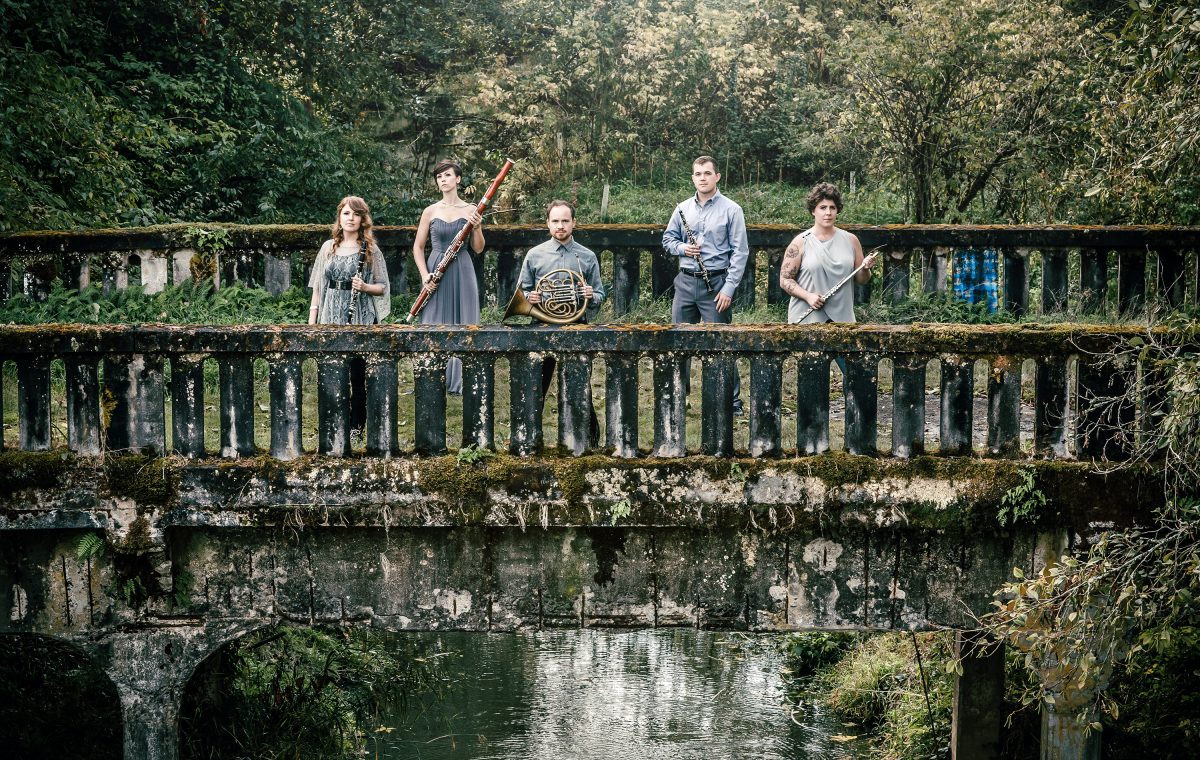
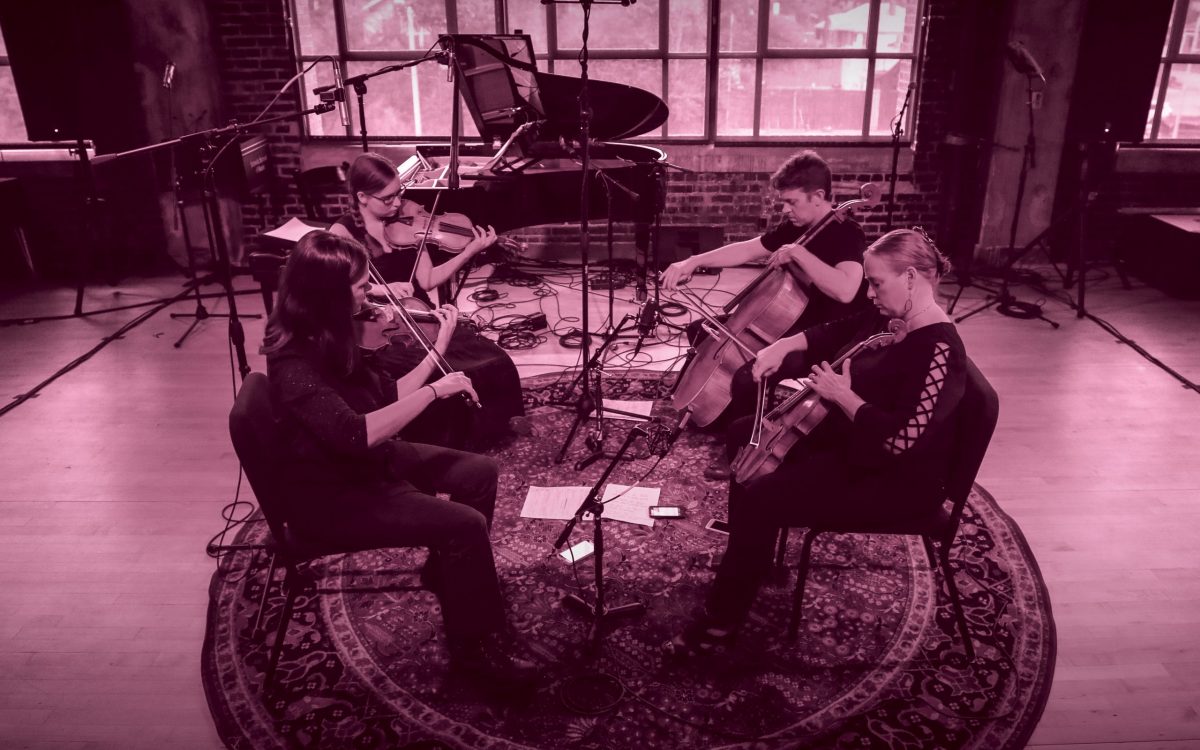
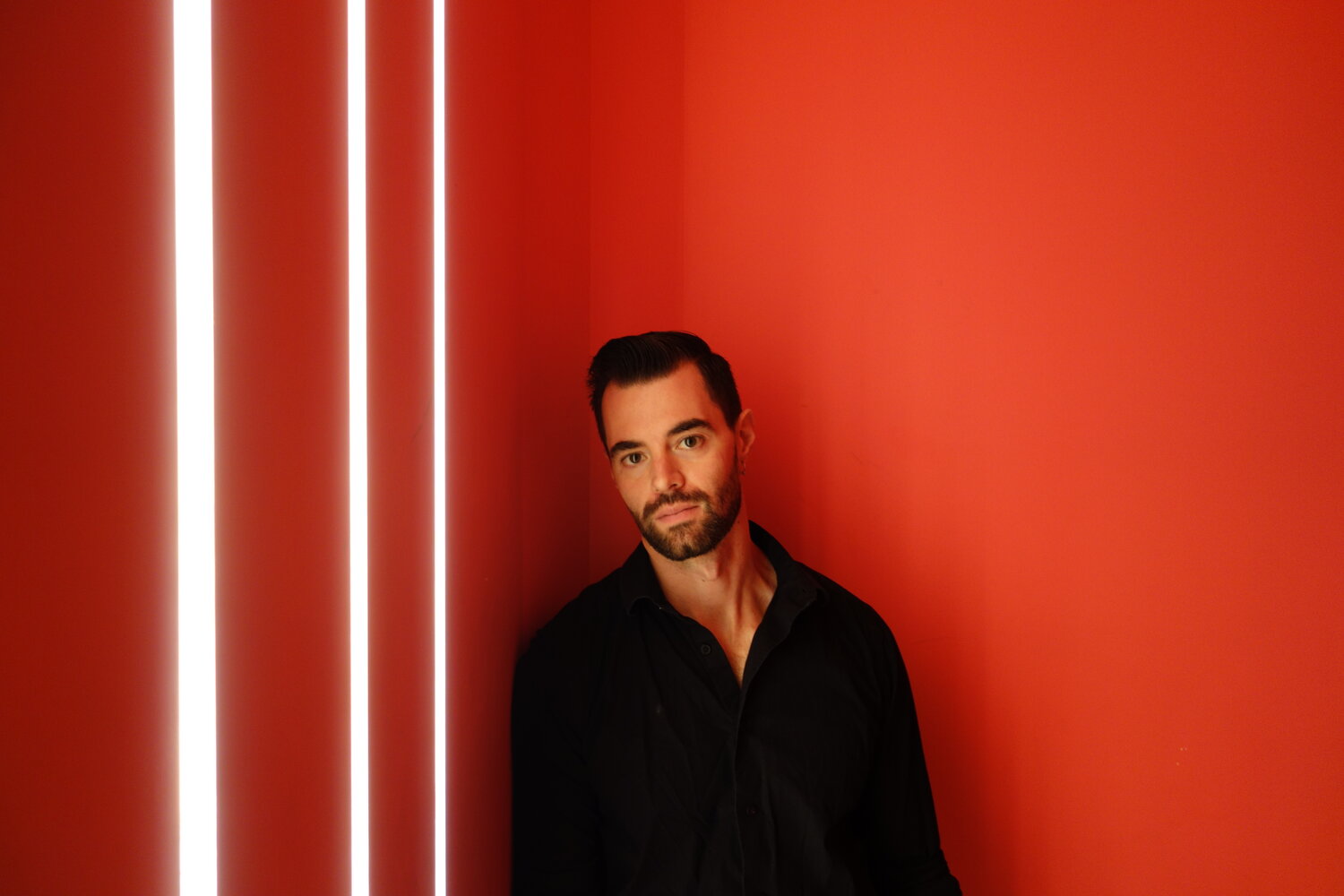
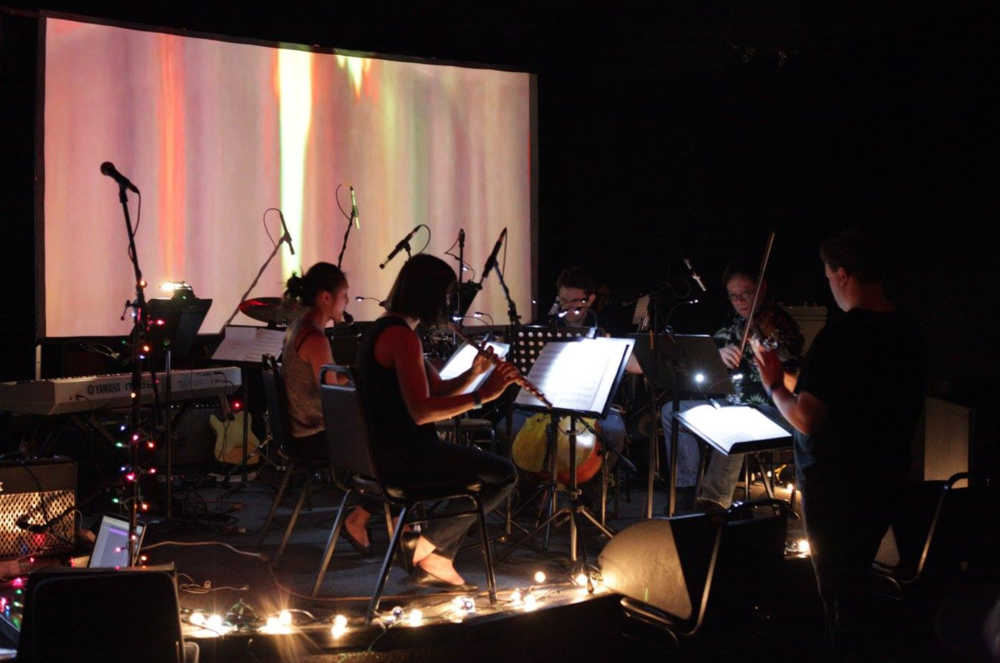
 Josh Miller
Josh Miller 